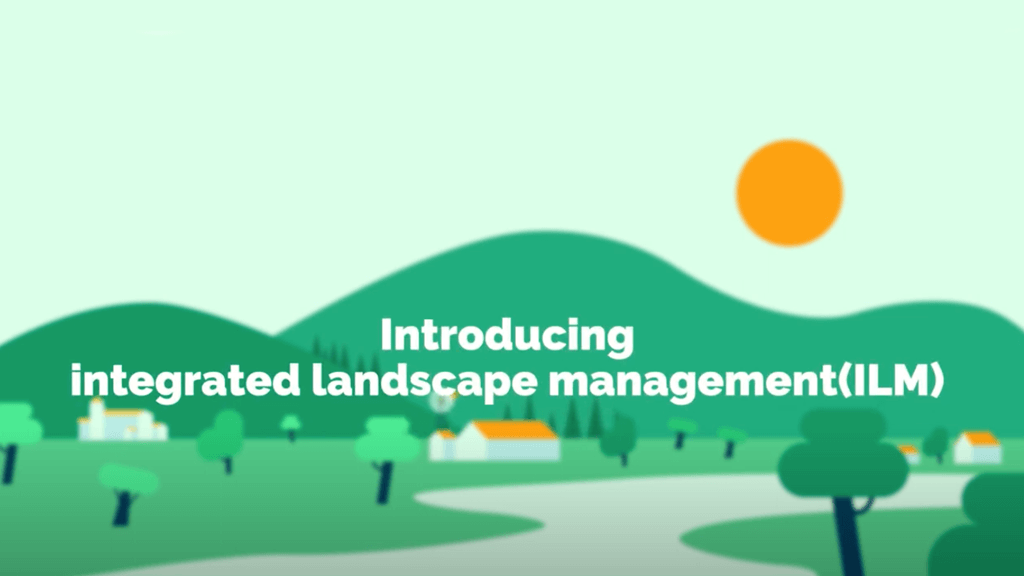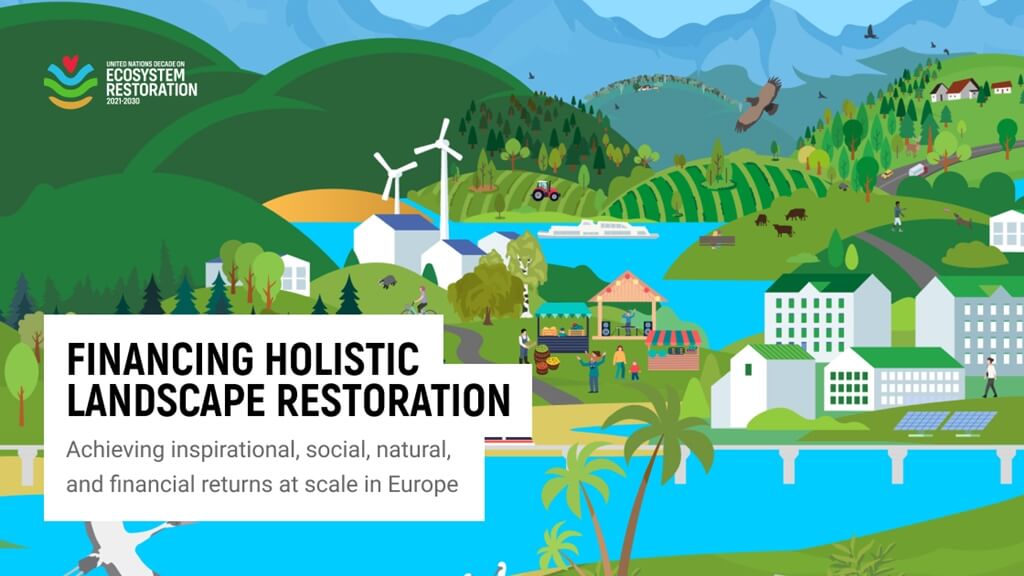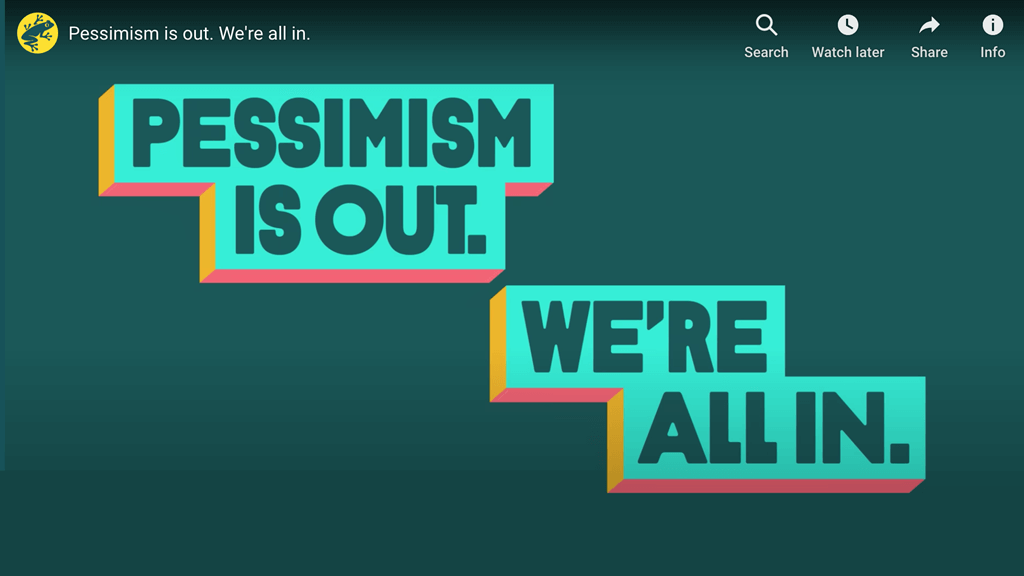1000L at UNFCCC COP 28
1000 Landscapes for 1 Billion people will be at the heart of the action, advocating for transformative change in finance, land use, and agriculture through the power of landscapes. Together with esteemed partners from Commonland, Regen10, Rainforest Alliance, Climate-KIC, and more, 1000L will explore the potential of locally-led solutions to transform our global finance, food, and agricultural systems.
Discover our ambitious COP agenda, the new papers we’re launching, and our mission to advocate for landscape approaches in Dubai! #COP28 #ClimateAction
Our Agenda
Climate Finance
- Climate finance can be most strategically deployed by targeting the multi-sector portfolio of investment projects facilitated and coordinated by Landscape Partnerships to achieve impacts for climate, people and nature at landscape scale.
- Integrated landscape finance strategies generate essential links between projects, thus increasing commercial and social returns, reducing investment risks, and increasing positive climate impacts for landscapes.
- Integrated landscape finance (ILF) is a new approach to financing climate projects that takes a holistic view of the landscape to optimize investment. This approach recognizes that climate change is a complex issue that requires a comprehensive solution spanning agriculture, forests, finance and access to it, food systems, renewable power generation, rural development, and other elements.
- Integrated landscape finance has important implications for the European Green Deal and for initiatives worldwide. It can help to fund projects that reduce greenhouse gas emissions, boost livelihoods, protect biodiversity, and build resilience to climate change.
Climate and Food Systems
- Landscape-led food systems transformation can deliver returns on the various needs of its stakeholders: human well-being, regenerative economies, healthy nature and inspiration to action.
- For regenerative agriculture to reach its potential– measurably decreasing agriculture’s contributions to climate change, biodiversity loss, land and water degradation; restoring ecosystems.
- Working in concert with allies from inside and outside the food sector such as those working in environmental management, urban planning and development, health services, and even the arts, enables farmers and agricultural supply chain actors to find long-term, regenerative solutions that stick and amplify impact.
- By addressing issues collectively, farmers, businesses, investors, land managers and governments can more efficiently navigate the intricacies of bringing regenerative agriculture to scale. Partnerships can facilitate solutions to thorny problems like land tenure disputes, agreement on lands and waters designated for commercial development and for conservation, and design priorities for new infrastructure.
Climate and Landscape Partnerships
- Landscape Partnerships can help scale and accelerate climate change mitigation.
- Multi-stakeholder landscape planning directly addresses climate-related challenges. Stakeholders and planners identify, negotiate and manage the impacts of different land uses and users on others in the landscape to maximize mitigation/adaptation benefits.
- Integrated Landscape Management (ILM) enables stakeholders to balance needs between sectors and stakeholders and to plan integrated activities that reinforce and complement one another.
Our Events
Partner-hosted events
Conservation International
- Tuesday, 05 Dec 2023
- 15:00—16:30
- SE Room 3
Systems thinking for holistic climate action:nature-driven engineering, policy and finance solutions
Fostering transdisciplinarity and systems thinking for inclusive, effective, nature-positive infrastructure and climate solutions in the context of the global stocktake (e.g. through nature-based and hybrid approaches, accelerating the energy transition) by mobilising youth, finance and policy.
Speakers: Kirils Holstovs, WFEO Young Engineers; Rod Braun, Conservation International); Laleh Behjat, University of Calgary; Sue Brown, Worley; Merkebe Demissie, University of Calgary; Pradeepa Bholanath, Advisor to VP of Guyana and architect of 2030 Low Carbon Strategy
Climate-KIC
- Friday, 01 December 2023
- 12:00 - 13:00 GST
- Blue Zone, UNFCCC Global Innovation Hub Pavilion
- Led by EIT Climate-KIC
Urban settlements in transformations – Places of learning, community and self-determination
This session opens a conversation about systems innovation in cities, and about role of city leaders and citizens, local communities and businesses, in transformation at scale. What is needed from city leaders and community leaders to support and enable change? How can leaders and urban dwellers be given the space to experiment, push boundaries and learn in real time and how can they work to engage and mobilise local communities? How can narratives, and opportunities for learning and active participation of citizens and community groups lead to positive and equitable change?
- Saturday, 02 December 2023
- 13:00 - 14:00 GST
- Blue Zone, Spanish Pavilion
- Co-organised by EIT Climate-KIC
Development of Resilient and Livable Cities
In a global context where cities are both contributors to environmental challenges and victims of their consequences, the event seeks to emphasize the significance of proactive urban planning. By encouraging a holistic approach to city development, participants will explore strategies that not only enhance resilience to climate change but also promote livability and well-being for their inhabitants.
This session will provide a platform for urban planners, policymakers, and experts to share insights and best practices in developing cities that can withstand the challenges of the 21st century. It will delve into topics such as green infrastructure, sustainable transportation, and community engagement, aiming to equip attendees with the knowledge and tools necessary to build cities that are not only robust in the face of adversity but also pleasant and nurturing environments for their residents. “Development of Resilient and Livable Cities” promises to be a crucial milestone in the pursuit of urban sustainability and human well-being.
- Sunday, 03 December 2023
- 10:00 - 11:00 GST
- Blue Zone, UNFCCC Global Innovation Hub Pavilion
- Co-organised by EIT Climate-KIC with BMW Foundation
Designing knowledge-action networks for supporting climate-positive innovation towards regenerative transformation
Join the livestream
- Sunday, 03 December 2023
- 10:00 - 11:00 GST
- Blue Zone, Resilience Frontiers Pavilion
- Organised by EIT Climate-KIC
Climate Narratives and Storytelling: Unleashing the Power of Creativity
Humans have always made sense of the world through stories and everyone should be equipped to tell powerful stories for climate impacts. Hence, it’s essential to invest time in building this capability to democratise storytelling.
This workshop session focuses on supporting participants in building personal capabilities towards communicating engaging climate stories. Through hands-on guidance participants gain an understanding of:
- how they can harness the power of creativity and storytelling to change systems for the better
- what makes a good story, and how they best pull out the main essences from their own work and experiences to create authentic and meaningful stories
- how to shape more inclusive narratives
- how to make sure that relevant stories reach a receptive audience’s
- Monday, 04 December 2023
- 17:00 - 18:00 GST
- Blue Zone, UNFCCC Global Innovation Hub Pavilion
- Co-organised by EIT Climate-KIC with OECD
Radical collaborations: Breaking finance silos and implementation barriers to deliver on the climate agenda
This session will focus on a system-thinking approach and explore new and radical ways of working across philanthropic funding and implementation. During the session, EIT Climate-KIC and the Systemic Climate Action Funding Collaborative and OECD’s netFWD will facilitate a discussion among foundations, delivering organisations, experts and public donors, to discuss practical and locally-led solutions to priority issues identified by the COP28 2 Presidency, including youth, education and skills, gender equality, nature, land use and oceans; while keeping a tight focus on poverty reduction and leaving no one behind.
- Wednesday, 06 December 2023
- 15:00 - 16:00 GST
- Blue Zone, UNFCCC Global Innovation Hub Pavilion
- Led by EIT Climate-KIC
Holistic and systemic urban transformation: Change at city-wide scale
This session focuses on learnings from the ground, hearing from cities that are currently engaged in systems-thinking and systems innovation approaches to creating whole place transformation. Focussed on reflections and lessons emerging from the experience at city-level, this session will bring together expertise and perspectives from leading initiatives in Europe, South America, North America and Asia.
Insights will include reflections on the need to address both mitigation and adaptation; finance and business models, multi-level governance, policy innovations needed for acceleration and scaling (via replication models), stakeholder engagement including direct and specific partnership and community-led and communityowned development.
- Sunday, 10 December 2023
- 11:30 - 12:00 GST
- Blue Zone, Spanish Pavilion
- Co-organised by EIT Climate-KIC
Challenges in the Implementation of Regenerative Agriculture Practices
This session shines a spotlight on a critical agricultural shift that aims to revolutionize the way we produce food while enhancing sustainability and ecological health. In an era marked by climate change and the need for more sustainable farming, this event addresses the hurdles faced in adopting regenerative agricultural practices.
The event underscores the significance of transitioning from conventional farming methods to regenerative practices that prioritize soil health, biodiversity, and carbon sequestration. It provides a platform for farmers, researchers, policymakers, and environmentalists to explore the complexities and obstacles inherent in this transition.
Through in-depth discussions, this gathering offers a comprehensive overview of the challenges faced in scaling up regenerative agriculture, including access to resources, market demand, and education. It aims to equip participants with a deeper understanding of the hurdles and potential solutions, fostering a roadmap for broader adoption of regenerative agriculture practices. “Challenges in the Implementation of Regenerative Agriculture Practices” is a pivotal moment in the ongoing effort to transform the way we cultivate the land and manage our natural resources.
Other events of interest

COP-related resources
Dive deeper into 1000L’s efforts to transform finance, food systems, and climate action with these key resources.

An Introduction to Integrated Landscape Management

Towards Financing Large-scale Holistic Landscape Restoration in Europe

Rainforest Alliance: We’re All In campaign

Rainforest Alliance: Climate Position Paper

COP28: Why climate solutions that center people AND nature are non-negotiables

1000 Landscapes for 1 Billion People: An Introduction

Landscape Collaboration for Regenerative Food Systems: Towards an Action Agenda

Open Letter press release

Toward Systemic Change in Landscape Finance
